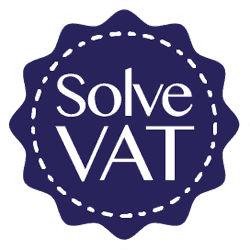Introduction – when VAT fraud suspected
VAT fraud is a serious crime that can have a significant impact on businesses and governments. It is estimated that the UK loses £15 billion to VAT fraud each year. If there is VAT fraud suspected in your business, it is important to take action prior to a VAT investigation. Being investigated by HMRC can be stressful and can lead to being named in public if an offence is found to have been committed.
If you have been accused of committing or being involved with VAT fraud we would recommend speaking to one of our specialist VAT consultants as soon as possible.
This article will outline the steps you can take to report VAT fraud. It will also provide information on the different types of VAT fraud, the penalties for committing VAT fraud, and the safety measures you should take when reporting suspected VAT fraud.
What is VAT fraud?
VAT fraud is any attempt to evade paying VAT. This can be done in a number of ways, including:
● False invoicing: This is where a business issues invoices with incorrect VAT details. For example, a business may issue an invoice with a lower VAT rate than is actually applicable.
● Not declaring the correct amount of VAT on income.
● Assisting a third party involved in VAT fraud.
● Fraudulent refunds: This is where a business claims a VAT refund for goods or services that they have not actually purchased.
What are the penalties for VAT fraud?
The penalties for VAT fraud can be severe. Individuals who are convicted of VAT fraud can be imprisoned. Businesses that are convicted of VAT fraud can be fined and/or have their VAT registration revoked.
Most VAT fraud is dealt with by way of civil penalties rather than by criminal proceedings.
A VAT registration can be withdrawn if HMRC take the view that the VAT registration has itself fraudulently defaulted on its VAT obligations or has facilitated the VAT fraud of another party. (See Ablessio)
Businesses that commit VAT fraud may be subject to civil penalties of up to 100% of the VAT involved. These penalties can include:
● A demand for the unpaid VAT, plus interest and penalties.
● A requirement to pay HMRC’s costs.
● A ban on trading.
● Personal liability being attributed to a Director of company
What safety measures should I take when reporting VAT fraud?

VAT fraud suspected
If you suspect that VAT fraud is happening in your business, it is important to take safety measures to protect yourself. These measures include:
● Do not tell anyone that you are reporting the fraud.
● Do not try to investigate the fraud yourself.
● Do not contact the suspected fraudster.
● Do not provide any information to the suspected fraudster that could identify you.
● It is also important to report VAT fraud to HMRC as soon as possible. You can report VAT fraud online or by phone.
How to report suspected VAT fraud
There are two ways to report VAT fraud suspected to HMRC:
● Online: You can report VAT fraud online using the HMRC online form. The form can be found on the HMRC website.
● Phone: You can report VAT fraud by phone by calling the HMRC fraud hotline on 0800 788 887.
When you report VAT fraud suspected, you will need to provide the following information:
● The name and address of the business you believe is committing VAT fraud.
● The VAT registration number of the business, if you know it.
● The details of the fraud you have witnessed.
● Your contact details.

Conclusion
If you have been accused of committing VAT fraud or if VAT fraud suspected there are time limits that need urgent consideration. We recommend seeking urgent advice from a specialist VAT consultant here at Solve VAT.
If you suspect that VAT fraud is happening in your business, it is important to take action and report it to HMRC. You can report VAT fraud online or by phone.
It is also important to take safety measures to protect yourself when reporting VAT fraud suspected. These measures include not telling anyone that you are reporting the fraud, not trying to investigate the fraud yourself, and not providing any information to the suspected fraudster that could identify you.
By taking these steps, you can help to protect your business and your community from the harm caused by VAT fraud.
If you have VAT fraud suspected at your business more information can be found at https://www.solvevat.co.uk/vat-expertise/vat-fraud/
Details on how to report VAT fraud suspected to HMRC can be found at https://www.gov.uk/report-tax-fraud

